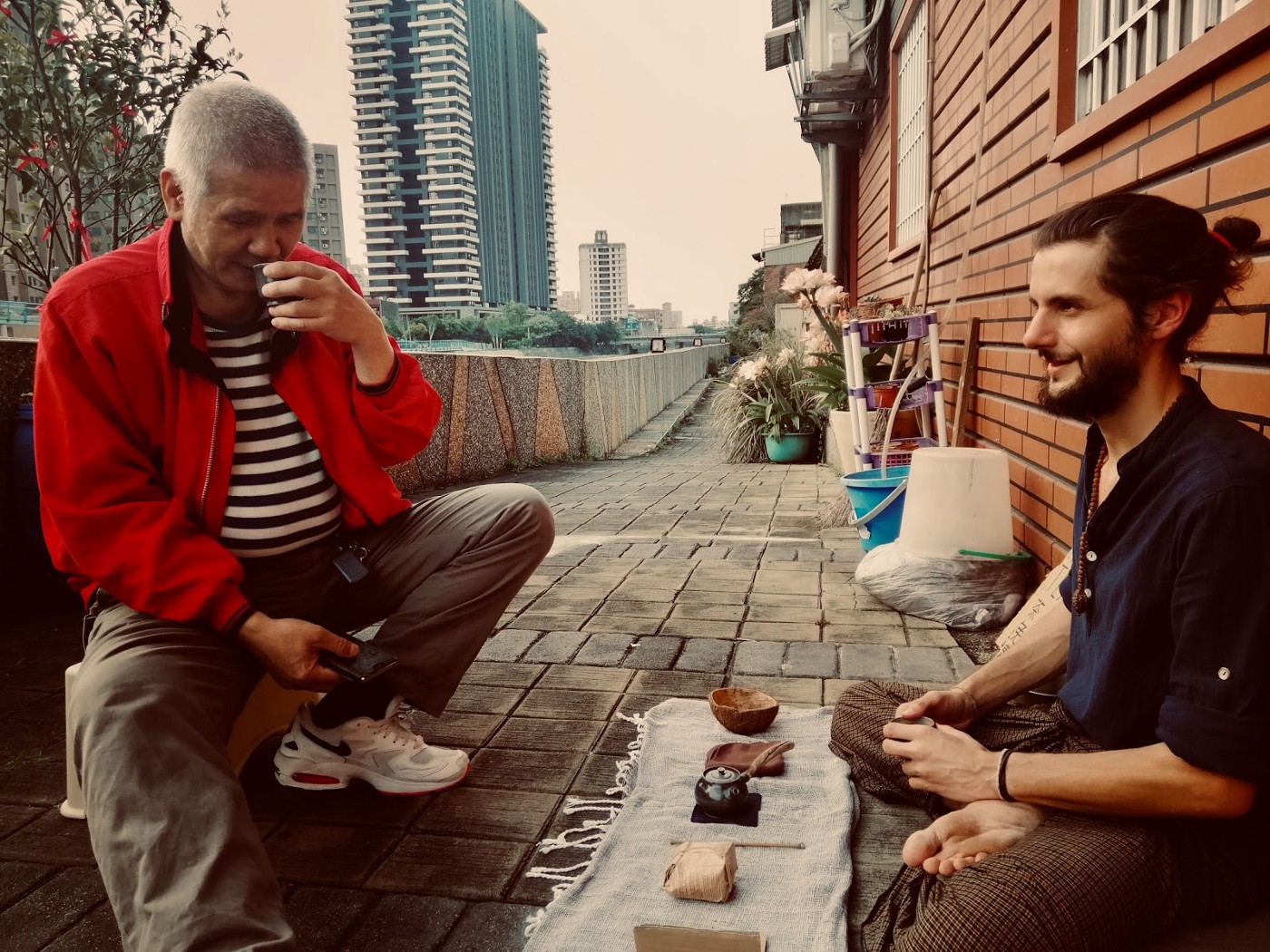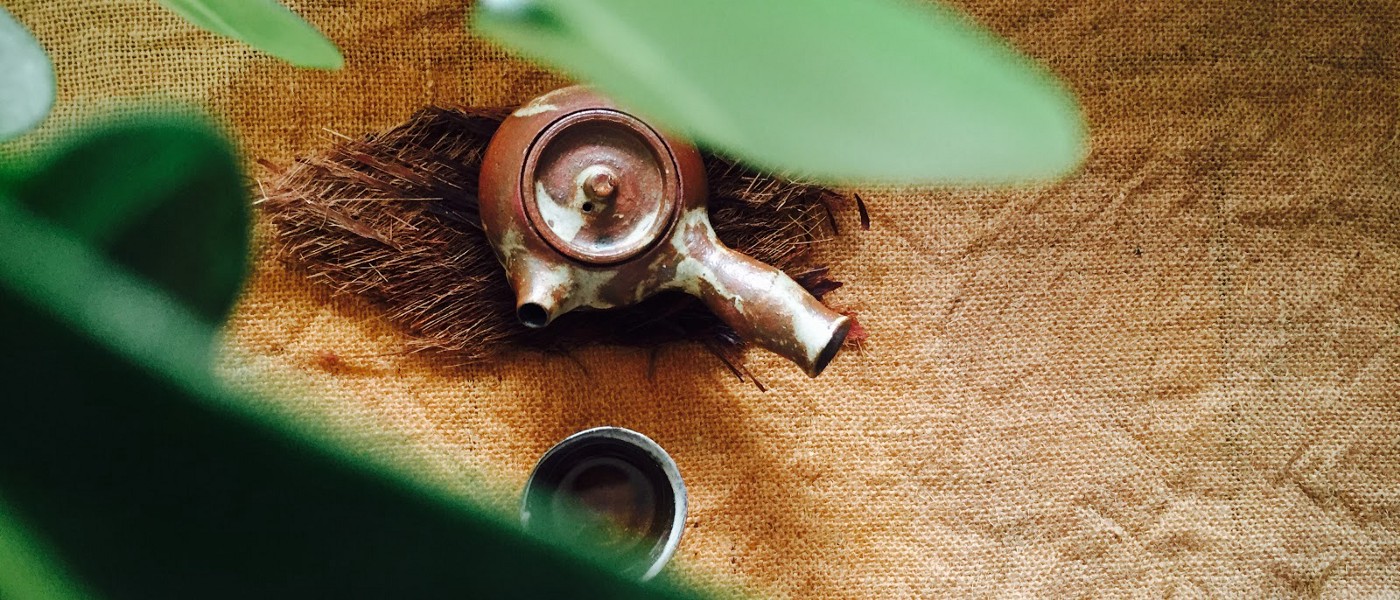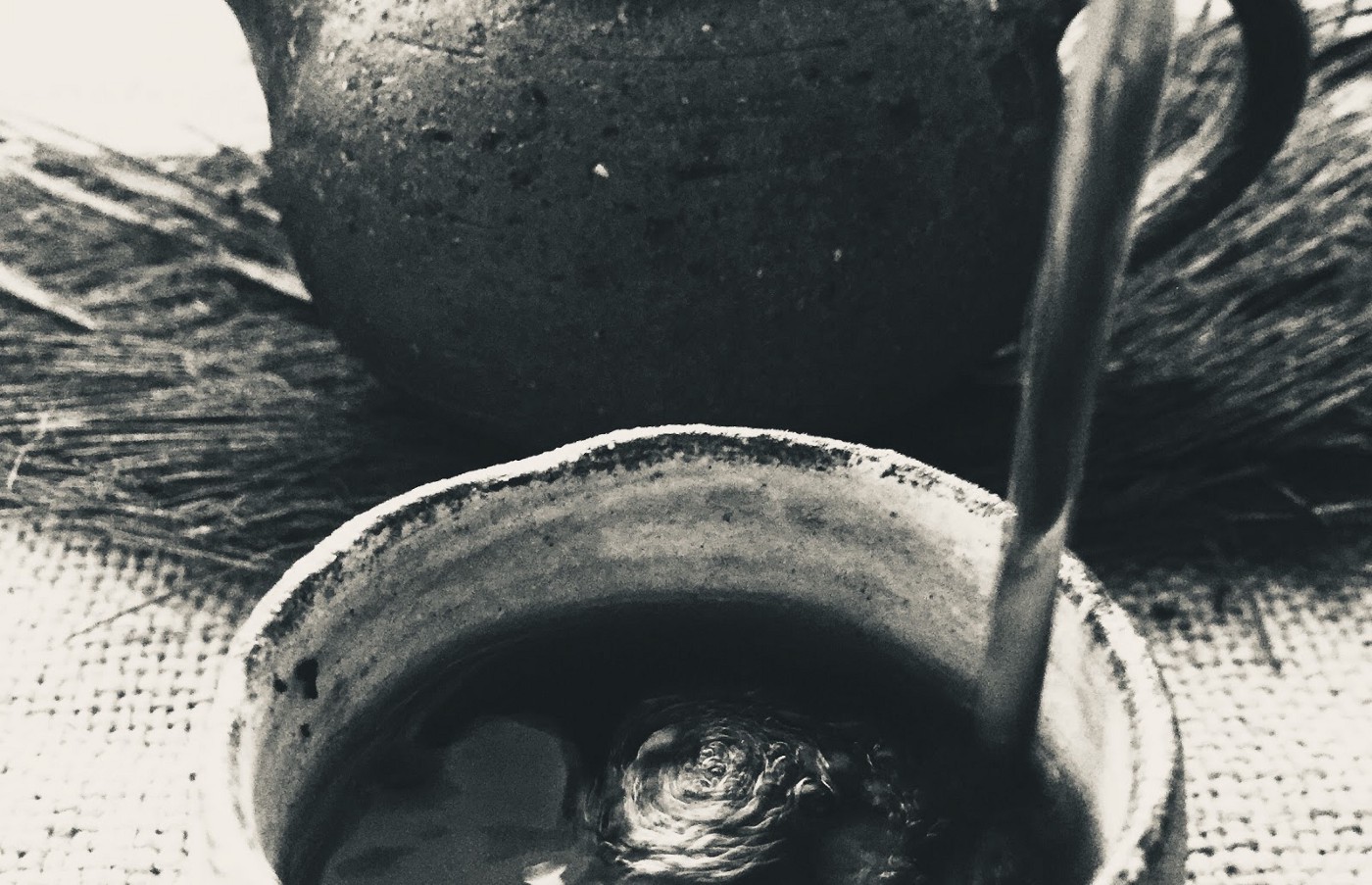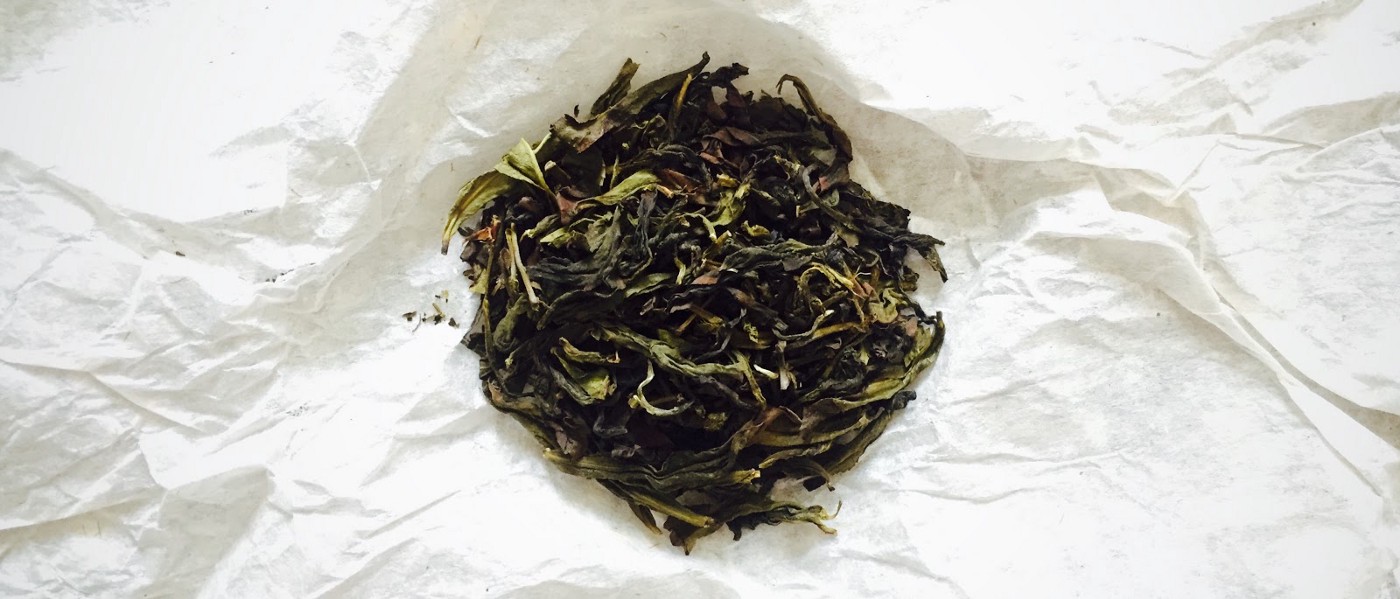
Hey, I’m Rafa, a tea disciple based in Martinique (French Caribbean).
In April 2017, I decided to put into motion a quest to reinvent my life. As I was driven by a desire to learn more about permaculture, natural building, ancestral and spiritual knowledge as well as simple living, travelling and volunteering around the world naturally appeared to be the right catalyst to do so. So there I was, leaving home with hopes and dreams, ready to become a student of Life and the Wild for a while. For 3 years and a half, I wandered, learned, and helped many beautiful and inspiring people around Europe and Asia within permaculture projects, alternative communities, meditation centers, and hospitals.
From those unique experiences and encounters was also born a call to explore and get more acquainted with tea, an interest that started to manifest itself and grow even stronger during my time in Malaysia, Taiwan, Hong Kong, Vietnam, and South Korea. The tea teachers, masters, and other enthusiasts that I met during those years on the road brought me precious inspirational experiences, knowledge, and an understanding of their respective culture that helped me to lay the first (but still unstable) foundations of my unripened practice. I would spend endless hours in tea houses with friends, serving some of them where I would try (and burn) my hand on cheaply made porcelain gaiwans, visiting tea farms lost in clouds and shops lost in time, drinking cup after cup with their owners, being grateful for their humility and kindness, and falling even more in love with the journey I was just starting to undertake.
Over time, my repeated and intimate sittings with tea led me to a spontaneous but clear realization: tea was asking to be understood, not to be known. This is when I decided to further craft my practice, slowly but surely breathing with it, trying to go deeper by drinking not more but better tea. During those explorations, I have come to wisely acknowledge the two main extremes of this craft (one being more practical, knowledge-based; the other, more mindful and spiritual), preferring ultimately to grow within a balanced space between them. A suitable middle ground where my practice would bloom at its fullest.
At the end of the day, I see it as a perpetual work in progress, akin to walking on a path that has no destination, sufficient in itself. Where the pervasive beauty of this art and its philosophy lies in each step, waiting to come to life.
Since I came back from my wandering adventures, tea has naturally found a strong anchoring point in my daily life. Regularly, I explore, experiment, and nourish my quest for multifaceted knowledge, inspiration, and wisdom to satisfy my eternal beginner’s mind. This living inner temple allows me to cultivate essential and primary silences, to be a student of spontaneous knowledge and a guardian of present moments.
Today, I share and document my contemplative and mindful journey with tea and its spirit through an Instagram account (@aboutleavesandclouds) as well as an ephemeral/nomad tea hut (Le cerf-volant) where I share my passion and help people to connect with their Nature through tea sharing sessions, initiations and ceremonies.

Five Humble Thoughts About Tea
Oriented toward fellow tea souls that just started to embrace the way of tea (either casually or more diligently), this article features 5 colored (but not dogmatic) thoughts based on my personal experiences. I hope they will be helpful and worth pondering during your own journey with tea.
1. One Teacher, No Teacher
Every tea teacher or master is equally right as she/he is wrong. That’s why their teaching and sharing are extremely precious.
At first, we tend to blindly replicate what we see and experience when learning from well-informed individuals. Our practice then seems and feels impersonal and spiritless as it bathes in its own ignorance, having no True North (a path that is yours).
Tea is mostly a land of spontaneity where everything is asking to be questioned and experimented with. Why do we rinse tea leaves with hot water? Wouldn’t it make more sense to rinse those delicate white and green teas with room temperature water instead (as I realized)? What about using porcelain cups? Do they make your practice more relevant or enjoyable?
Be an eternal student and explorer of your own path. Only you can walk on it. So breath with it. Color it with good and sentient intention. But don’t forget to approach your tea sisters/brothers/sages and their personal practice with openness and respect. In many ways, your most valuable lessons will emerge from the plurality and richness of your experiences and encounters. In tea, there is indeed nothing right or wrong. Only differences and preferences.
2. One Tea, One Pot, One Lunar Cycle
There is a small explorative exercise that I’m really fond of, as it can be extremely rewarding when one is looking to get more acquainted with a specific tea. It consists of choosing one tea, pairing it with one pot, and drinking it alone for one Lunar cycle.
This intimate experience will allow you to get closer to its Cha Qi (vital force/energy of the tea), how and where it flows, to pay attention to the sensations that it offers, and to strengthen your bonds with your daily practice.
Then you might discover along the way that there is no such thing as “the best tea” or the worst one. There are teas that you drink, teas that you don’t. And there is the tea that you are currently drinking — the only one that matters.

3. Tasting Notes, Tasting Not
Noticing tasting notes usually comes spontaneously when we drink tea. Flavors and scents are indeed the most obvious elements that tend to manifest when the cup reaches your lips. One, however, has to be cautious and share them sparingly if she/he intends to do so. As rich and exciting as they might be, they tend to be deceptive and irrelevant, influencing the practice of others, sometimes in a detrimental way.
Remember, tea is mostly a subjective affair. In a way, it might be more respectful to just let others see for themselves. To invite them to drink the tea on their own, so they can really do it justice.
4. Living Water > Tea Leaves > Clay
A combination of good leaves, good clay, and bad Water will certainly result in an average tea.
Water — this invaluable 4 billion-year-old entity that ignites and carries Life on Earth — has far more influence on tea than any other factors involved in the tea brewing process. One might even say that tea is nothing more than flavored water (which is not totally untrue). While playing a significant role, the quality of your tea leaves and the clay of your teapot are bound to come second, echoing the Chinese saying “Water is the Mother of tea, and teaware is the Father of tea” (水为茶之母,器为茶之父).
Living Waters (as described in the famous Lu Yu’s The Classic of Tea) are undoubtedly the most suitable ones for drinking tea. Since the dawn of time, the natural springs and streams of this world give unconditionally, sustaining and nourishing every living being on Earth (as they did for the old tea masters, monks and wanderers). They invigorate, heal and bring purity.
But comparing Living Waters with each other it’s unreasonable and unnecessary as it all comes down to respect and personal preferences. It’s akin to comparing Nature with Nature. While it’s based on good intentions, this mechanical mindset will likely lead to an unbalanced and self-centered practice despite the fact that we are part of a Whole.
When the opportunity arises, try to dedicate some time to wandering around mountains, forests, and other natural places that speak Life. Your Living Water is waiting for you somewhere, ready to give you her secrets and nourish your practice.
5. The More You Know, the Less You Understand
Along the way, I realized that 95% of tea is about sitting. But this simple and basic concept can easily be lost at times as we get mindlessly distracted by perfecting something that is already embracing perfection. There is nothing to pursue or to grasp when we drink tea alone or with others.
Tea is an invitation to slow (flow) down, create sacred spaces to do so, and cherish the impermanence of the present moment (ichi-go ichi-e). Make your practice your own temple and share it with friends and loved ones. There you’ll undoubtedly reach a land of solace, joy and fulfillment.

May you drink and share more cups with abundance, appreciation, and love.
Until our paths cross again.

Feel free to follow my tea journey on Instagram at @aboutleavesandclouds. Your DMs are welcomed. I’m looking forward to meeting you there!
(Originally published by Rafa in MyTeaPal Stories)